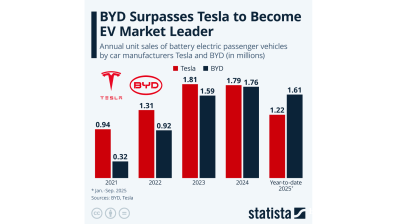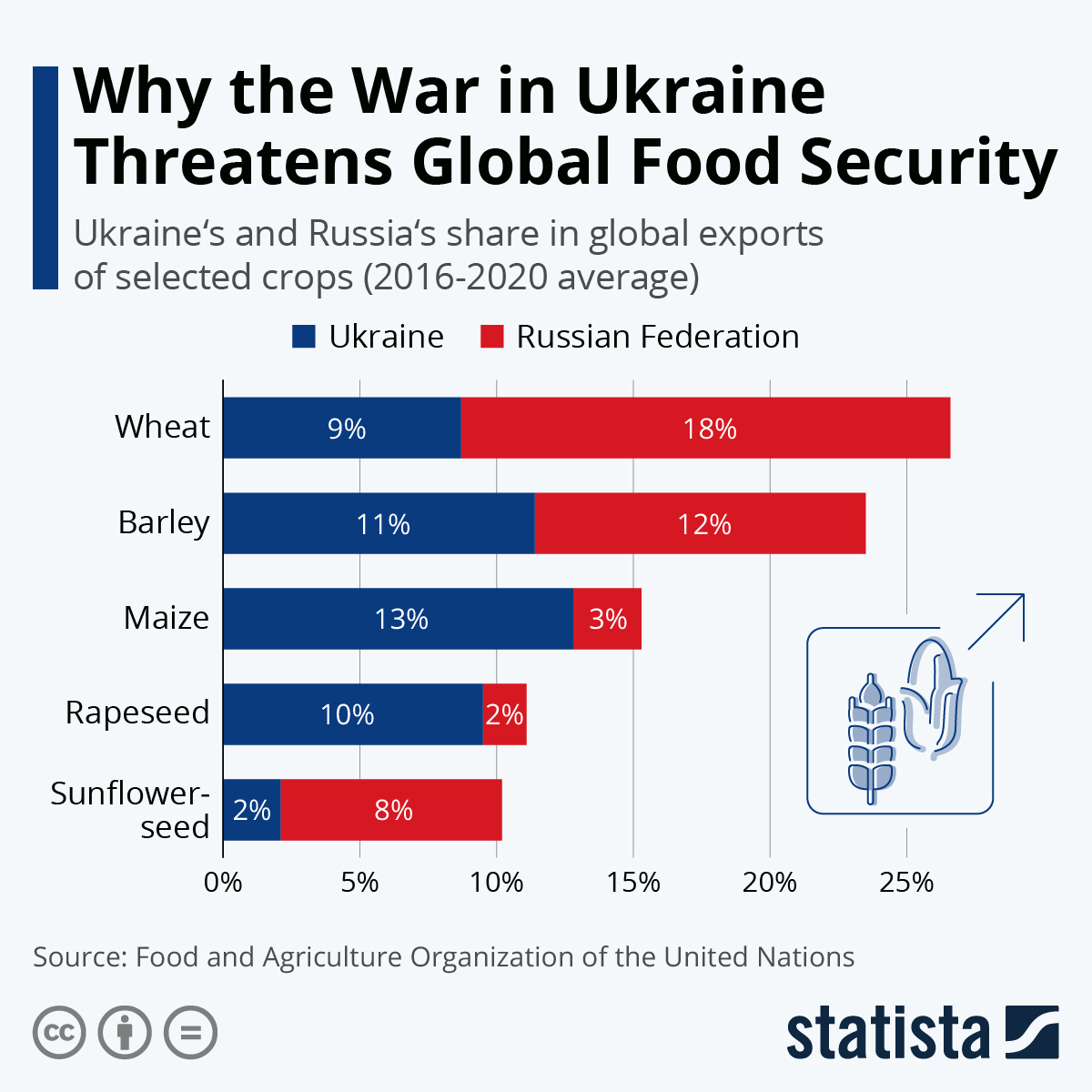More than six weeks into Russia’s invasion of Ukraine, there’s no end in sight to the conflict that has shaken the world to its very core. Aside from the immense suffering caused by Russia’s aggression in Ukraine, the war is also having major repercussions around the world, especially on food security, Statista said in a note.
The head of the United Nations World Food Programme, David Beasly, recently warned that the war was creating a food crisis “beyond anything we’ve seen since World War II", leading to surging food prices and possibly shortages in many countries that rely on exports from Russia or Ukraine.
As the following chart, based on data from the Food and Agriculture Organisation of the United Nations (FAO), shows, Ukraine and Russia are major producers of wheat, barley and maize, accounting for an average (combined) share of 27%, 23% and 15% of global exports between 2016 and 2020 respectively. Even the World Food Programme itself gets 50% of its grain supplies from the Ukraine-Russia area and is now facing dramatic cost increases in its efforts to combat food emergencies around the world.
“This is a catastrophe on top of a catastrophe,” WFP director Beasley said, referring to the devastating effect the coronavirus (COVID-19) pandemic has had on world hunger. According to the UN organisation, the number of people facing acute food insecurity had jumped from 135mn to 276mn since 2019 – and that’s not even taking the conflict in Ukraine into account. In total, more than 800mn face hunger around the world, while 44mn people in 38 countries are teetering on the edge of famine, according to WFP.
The war in Ukraine is endangering crucial wheat supplies in many of the least developed countries in the world. Among them, countries in Africa and the Middle East in particular are heavily dependent on wheat imports from Russia and Ukraine. According to the UN Comtrade database, Benin and Somalia used to obtain all of their wheat from Ukraine and/or Russia. The dependency of Egypt stood at 82%, according to the data.
While crop failures are to be expected in Ukraine in 2022, Russia imposed an export ban on products such as wheat until the end of June 2022, leading observers to predict shortages and rising prices among their trade partners and on the world market. Egypt and Somalia are among the countries where wheat is traditionally used in some of the most common food staples. According to The Guardian, a food shortage had already been looming in the latter country because of a resurgence of conflict and drought, causing international organisations to warn of the risk of severe hunger even before the invasion.
Ukraine and Russia are also among the world’s top exporters of other important food staples. Around two thirds of the global exports of crucial sunflower products like oil and feed come from Ukraine and Russia.
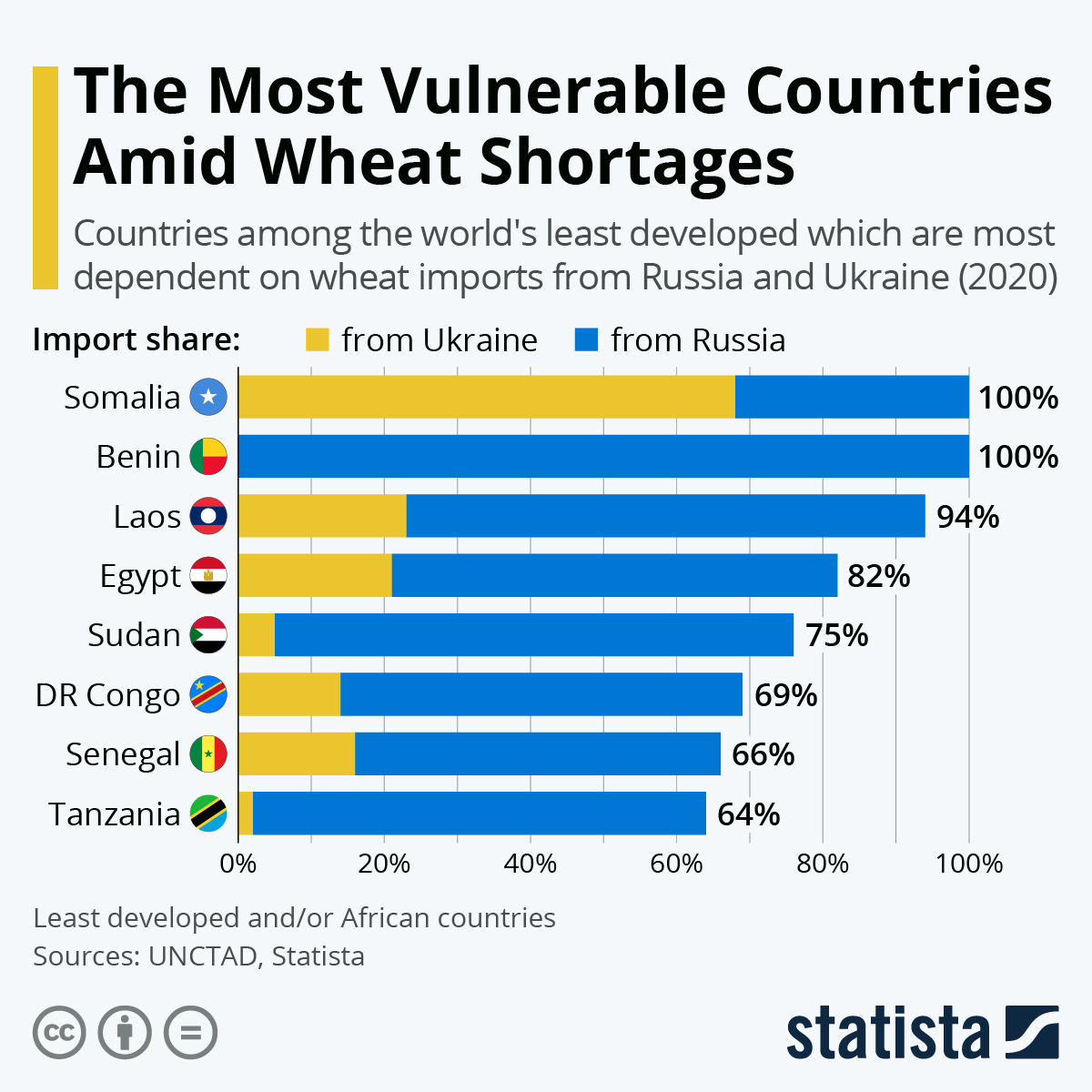 You will find more infographics at Statista
You will find more infographics at Statista
Data
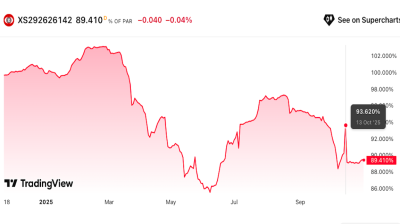
Eurobonds of Istanbul-listed Zorlu units offer attractive yields amid rating downgrades and no default expectation
Debut paper currently offering 14-15% yield.
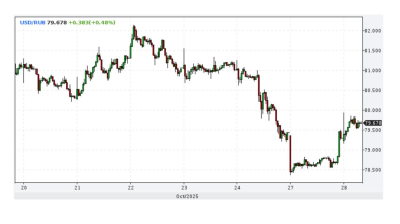
Ruble strengthens as sanctioned oil companies repatriate cash
The Russian ruble strengthened after the Trump administration imposed oil sanctions on Russia’s leading oil companies, extending a rally that began after the Biden administration imposed oil sanctions on Russia in January.

Russia's central bank cuts rates by 50bp to 16.5%
The Central Bank of Russia (CBR) cut rates by 50bp on October 24 to 16.5% in an effort to boost flagging growth despite fears of a revival of inflationary pressure due to an upcoming two percentage point hike in the planned VAT rates.
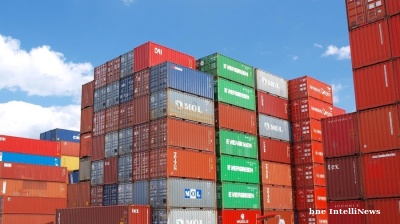
Ukraine's trade deficit doubles to $42bn putting new pressure on an already strained economy
Ukraine’s trade deficit has doubled to $42bn as exports fall and imports balloon. The balance of payments deficit is starting to turn into a serious problem that could undermine the country’s macroeconomic stability.
